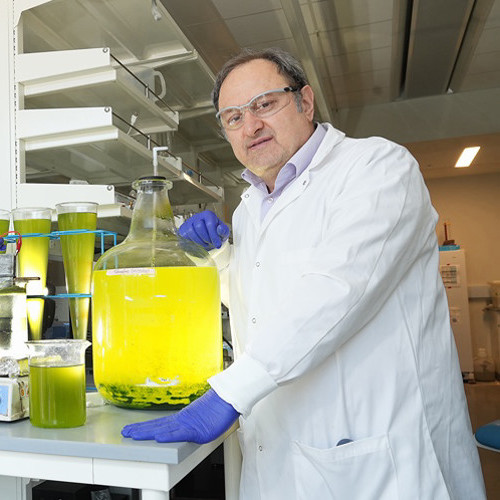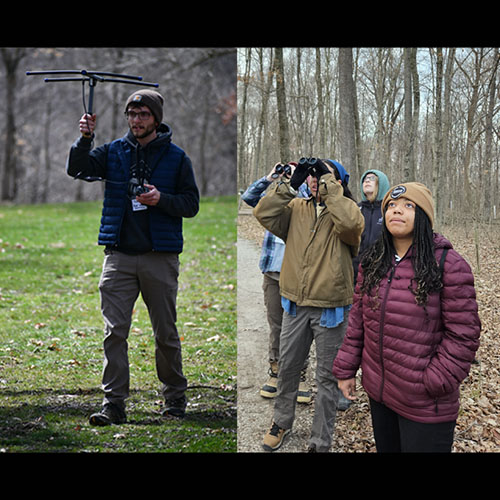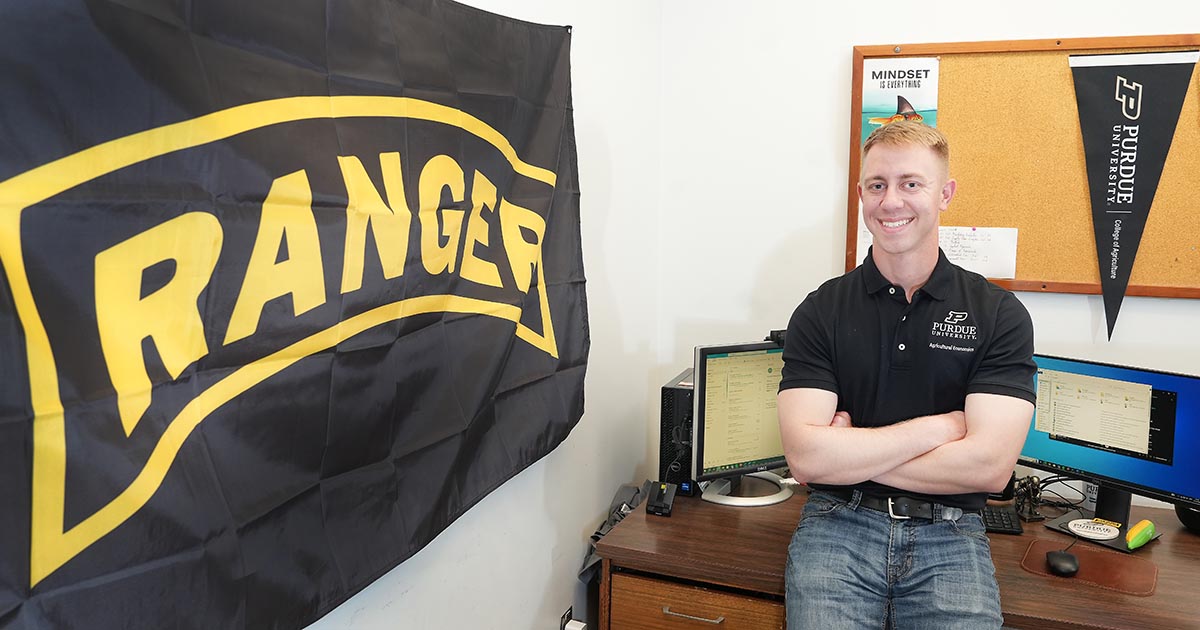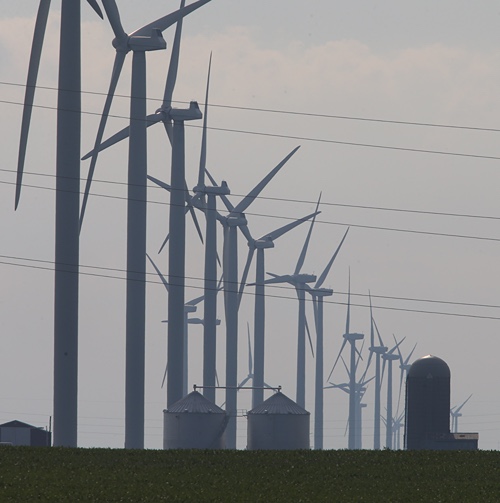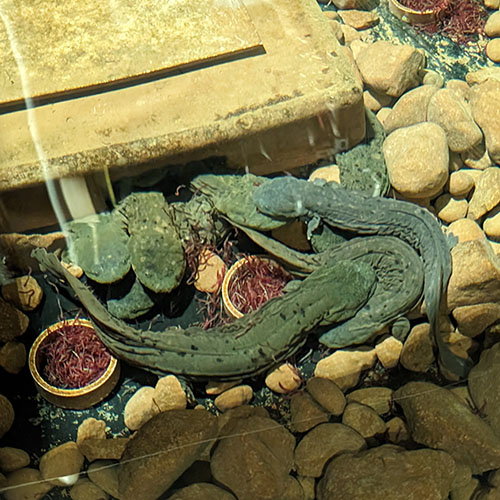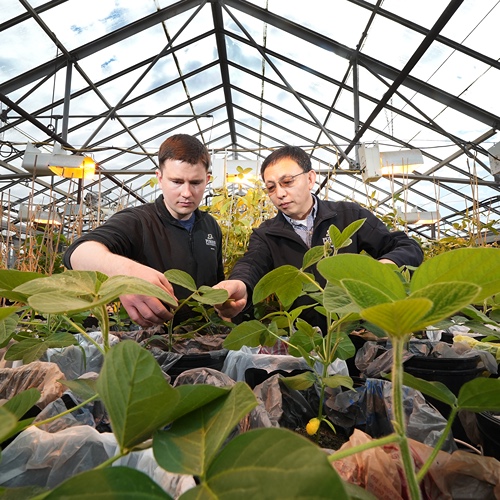I speak science. Let’s see how I can teach it to you better.
- Denise Caldwell, PhD student, Department of Botany And Plant Pathology
The student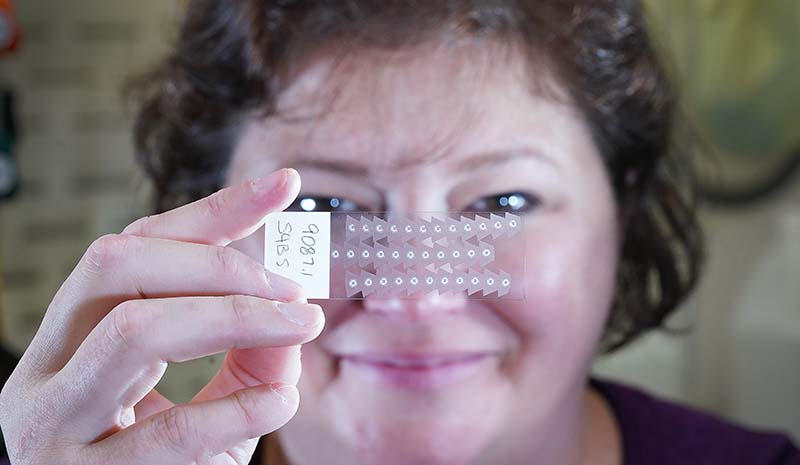
Denise Caldwell started undergraduate study in biology at Purdue in 1992. The native of Monticello, Indiana, struggled for three semesters before a low GPA brought her Purdue career to an end — or more accurately, a long pause. Through testing at Purdue’s Disability Resource Center (DRC), Caldwell found out at age 36 that she is a nontraditional learner. “The DRC helped me learn the way I needed to learn and obtain the resources I needed to do so,” she says. Armed with that information, and after having four children, she returned to Purdue in 2010 and completed her BS in horticultural science in 2012, followed by a master’s degree in 2016 under Anjali Iyer-Pascuzzi, professor of botany and plant pathology. Caldwell then worked as a lab technician, and in training PhD students concluded that she could earn that degree, too. Her doctoral work, which began in May 2020 under Iyer-Pascuzzi’s guidance, capitalizes on a passion for plants she discovered in her early 30s and the impact of looking through a scanning electron microscope for the first time at Purdue: “This was like the universe unfolding in front of me,” she recalls.
THE RESEARCH
“I study cellular interactions between plants and pathogens,” Caldwell explains. One of her research projects, on how the pathogen Ralstonia solancearum enters the plant and causes bacterial wilt in tomatoes, has led to several published articles. She also studies how the fungal pathogen Fusarium oxysporum colonizes in the plant’s vascular system. A NASA grant will allow her to carry this research into space aboard SpaceX 29, tentatively scheduled for liftoff in November. The project will grow tomatoes in spaceflight and treat them with salicylic acid, which causes the plant to react as if a pathogen is targeting it. Caldwell then will study the effect of this on plant gene expression. Another project she is working on involves cellular characterization of tar spot in corn. She hopes that knowing how these diseases attack plants will lead to earlier detection and more effective mitigation. “I have a learning disability, and learning through traditional methods is challenging, but I have a unique ability for visual processing and observing spatial details,” she says. “I can spot differences and changes in cell patterning and anatomy. What made me feel inadequate growing up has become something that has helped me greatly in my career and become one of my greatest strengths.”
opportunities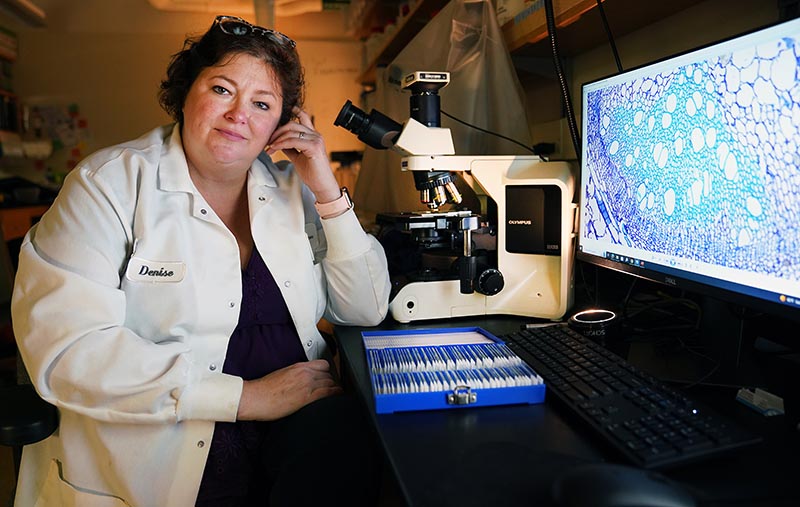
“Having the right PI makes a world of difference,” says Caldwell, who credits Iyer-Pascuzzi with understanding and accommodating her learning style. As a teaching assistant in her department and senior mentor at the DRC, Caldwell says she tried to make every student feel worthy, unencumbered and comfortable in the way they learn. Caldwell’s peers and faculty in botany and plant pathology also “understand that it’s okay not to be typical,’” she says. “I found people who speak the same language; we speak science.” Caldwell especially values the department’s diversity and opportunities to interact with younger people.
future plans
Caldwell expects to complete her degree in spring 2025 and is looking forward to starting her career at age 51. “I’ll always be open to good opportunities, because I said ‘yes’ to this one,” she says. Her ideal position would combine teaching with research. Outside the lab, she enjoys spending time with her family: “Between work and home, that’s a full life,” she says.
